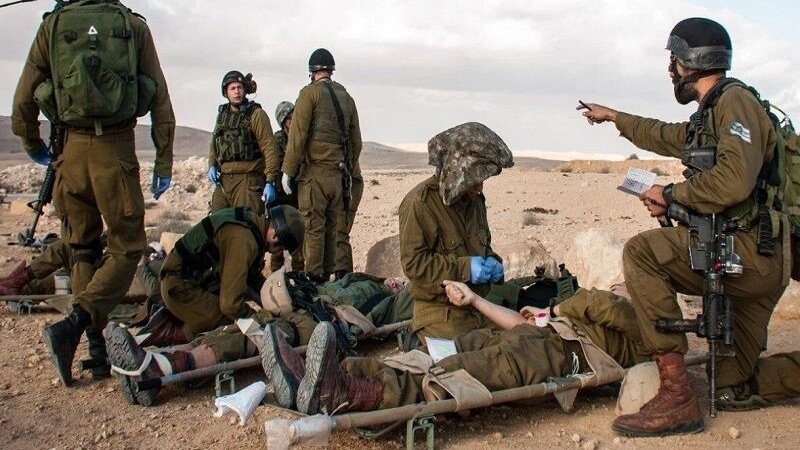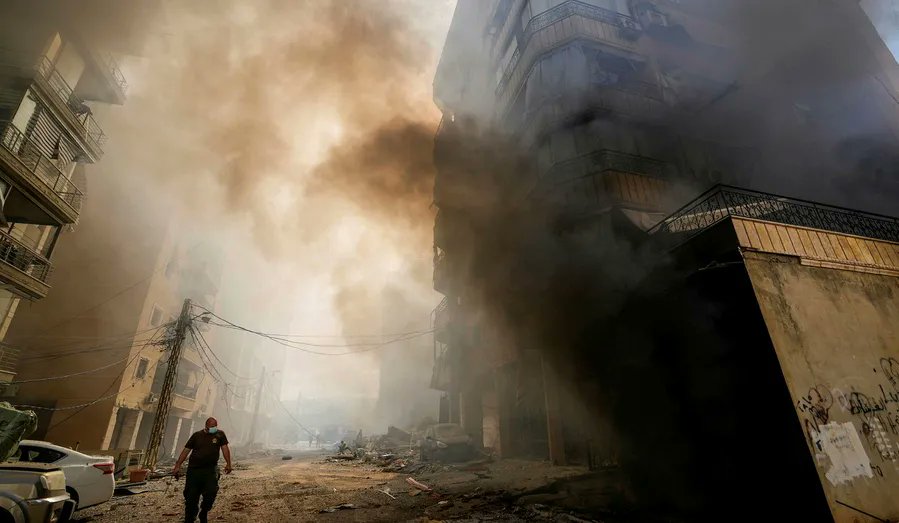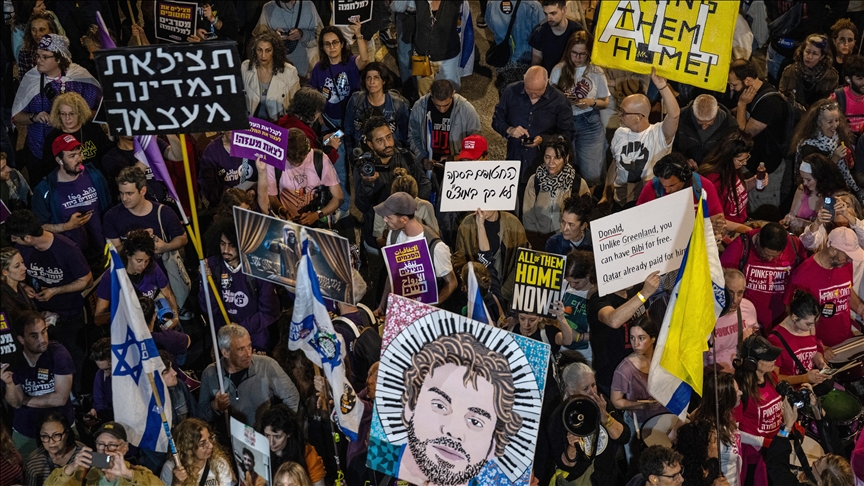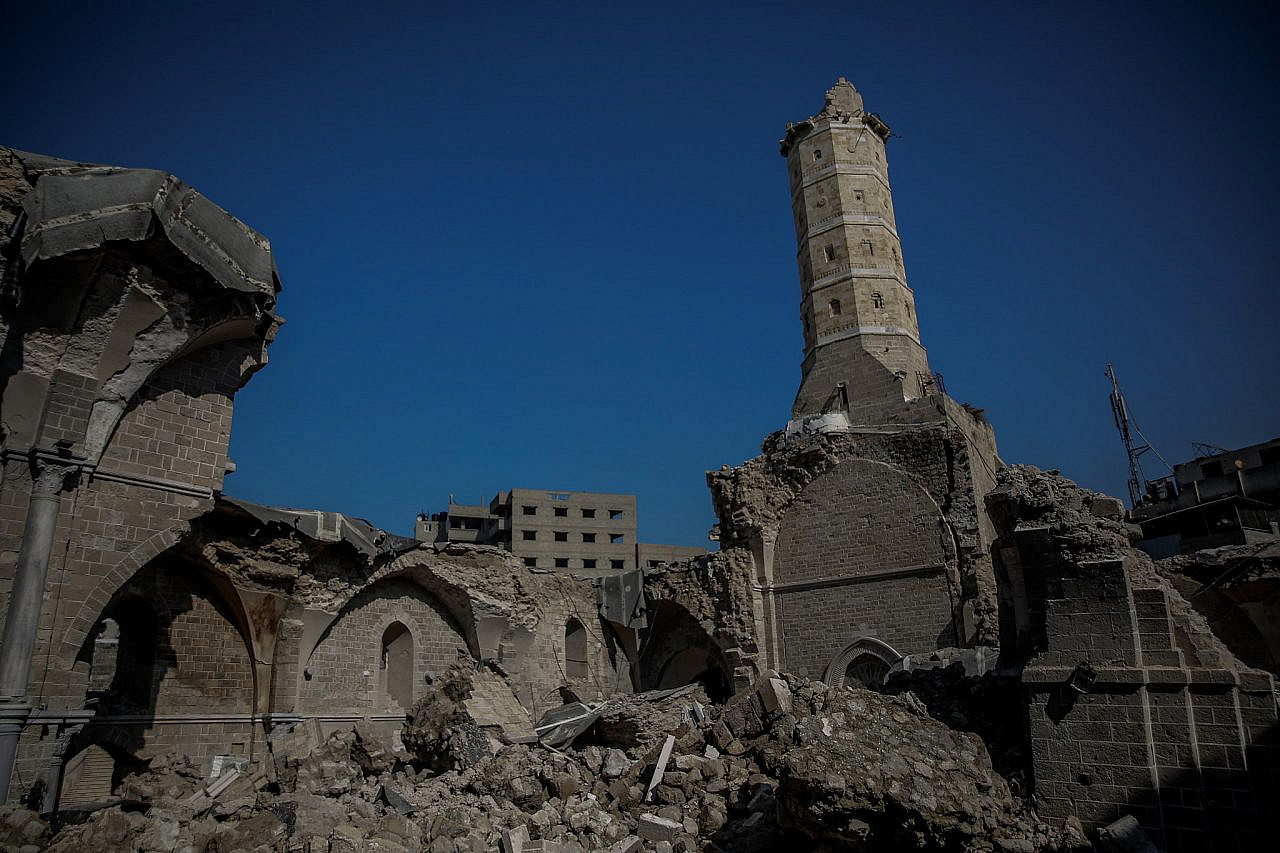‘Bibi, You Are Not Going to Win this War’
Look Bibi, you are not going to win the war so stop acting as if you are going on! The sooner Prime Minister Benjamin Netanyahu realizes that the better it would be for everyone.
But will he? Netanyahu is on a rollercoaster. Unable to finish off Gaza and Hamas, he turns his army to Lebanon and Hezbollah but he is soon stuck in the ‘mud’ despite the mass bombing, the destruction and the murder of innocent civilians.
The Israeli army has tried to cross the border at least seven times but has failed. It tried to enter a few hundred yards into southern Lebanon but soon pushed back every time by Hezbollah fighters. The Israeli army is finding out this party is no pushover despite the early pagers and the walkie talkie deathly-traps disasters.
Despite its air superiority and massive bombings that killed much of its top cadres including the dramatic killing of Secretary-General Hassan Nasarallah, Hezbollah fighters soon picked up and regained their strength and armor.
On the ground, the Israeli soldiers were not going to cross into Lebanon and that was a promise kept up by the skirmishes, heavy fighting, engagement and combat. Israeli soldiers were being stopped at the door so to speak, they were being killed and injured as reported by Hezbollah and admitted to by the Israeli army.
In addition to that, Hezbollah has been launching missiles and rockets on northern and central Israel all week, reaching all the way to Haifa and Tel Aviv, Acca, Tiberias, Safad with settlements, military basis, Mossad headquarters, the Galilee and all way to the occupied West Bank.
What this meant is that sirens were going off all the time and people were going in and out of underground shelters because of the extent of the missiles that were mostly coming from southern Lebanon but occasionally from Yemen and from Islamic resistance groups in Iraq and even Syria.
Psychology Strain
So the psychology has been a strain on its people, military and even politicians for on average between 100 and 150 missiles were being launched on the Israeli interior and on a daily basis. The majority of these are falling on these areas all the time and wreaking havoc and nervousness. Their deflection by the Israeli Iron Dome has failed badly in this war with Israelis feeling the heat as 23 percent of the population polled are already thinking of leaving the country.
Hezbollah is launching the different missiles despite the constant bombing being made by Israeli warplanes on the southern district of Beirut which is considered as the main Hezbollah stronghold. The Israelis are bombing intensely the Lebanese district, almost on the same level that was being practiced on the Gaza Strip, especially in the early months of the period following 7 October.
However, Hezbollah is stronger than Hamas and continuing its battering of the north of Israel – as can be seen – and will be maintained for a long time. Observers are saying Hezbollah seeks to send a clear message to Israel that ‘if you bomb our south district we will continue to strike places like Tel Aviv and Haifa’ which are the major economic and technological hubs and conurbations in Israel.
It is not an east ride for Israel after it killed Nasrallah which was seen as a brief moment of success and jubilation not least most of all from Israeli Prime Minister Benjamin Netanyahu who wanted to celebrate this act on the first anniversary of 7 October. But this wasn’t to be for soon, Israel was hit by 200 ballistic missiles launched all the way from Iran and increasing the psychology of fear among the Jewish population.
Israel has already tried to play down that affair by saying these missiles were not effective but they later admitted at least two of their military bases were hit. On the point of conjecture, everyone is expecting Israel to strike Iran and expand the regional war. But the Americans, whose generals and politicians are presently in Israel, they maybe trying to persuade the Israeli government not to because of the deadly consequences and slippery-slope scenarios.
Meanwhile, and feeling the pain again, Israel is going back to pound poor old Gaza in a most intense and obscene way and manner while seeking once again to drive the population of northern Gaza further down south and create a military zone and fill it with Jewish settlements through its so-called ‘Generals’ Plan’.
This was the idea put forward at the start of this war on the enclave last year. It failed then – despite talk of driving the Palestinians into the Sinai Peninsula – and no doubt it will fail now.
This is because after a whole year of destruction Hamas and its fighters continue to be a force to be reckoned with. They have not been destroyed despite the mass bombs dropped on Gaza but they are regrouping throughout the enclave and dealing painful blows to the Israeli army.



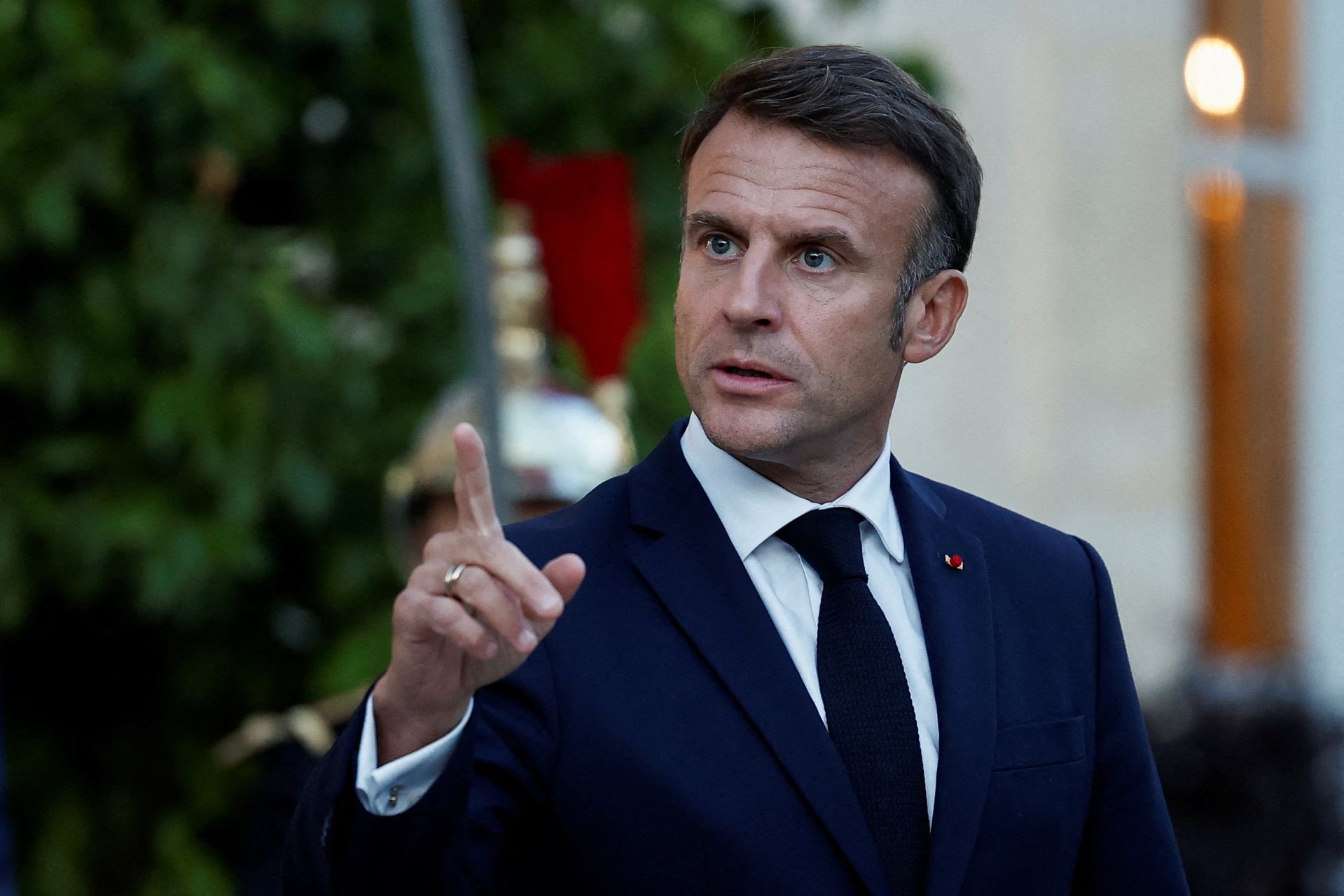
 Emmanuel Macron urges countries halt to arms deliveries to Israel for use in Gaza..
Emmanuel Macron urges countries halt to arms deliveries to Israel for use in Gaza..

